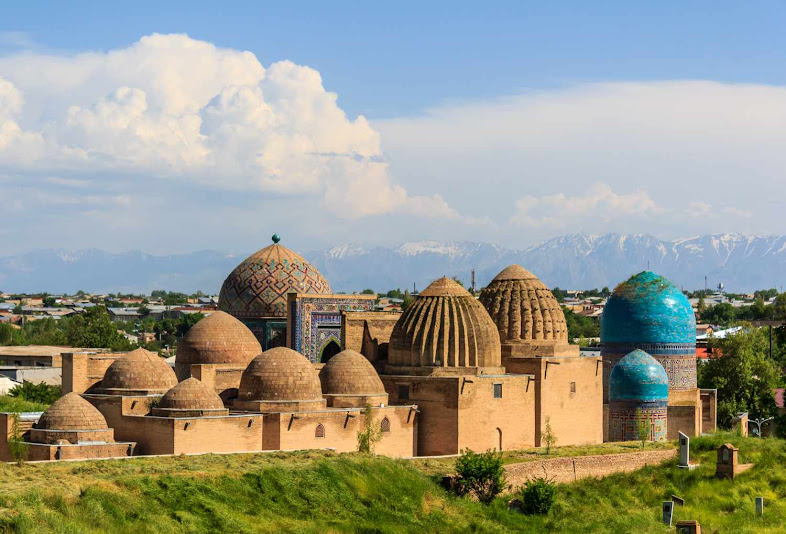Cultural differences and similarities between India and Uzbekistan
Studying MBBS in Uzbekistan as an Indian student can be an enriching experience, but it also comes with its own set of challenges. One of the most significant challenges that Indian students may face when studying in Uzbekistan is adapting to the cultural differences and similarities between the two countries. This article explores some of the key cultural differences and similarities between India and Uzbekistan that Indian students studying MBBS in Uzbekistan may encounter.
Language barriers can be a significant challenge for Indian students studying MBBS in Uzbekistan. Uzbek is the official language of Uzbekistan, and while many people in Uzbekistan speak Russian, English is not widely spoken. Indian students may need to learn Uzbek or Russian to communicate effectively with locals and understand their coursework. However, many universities in Uzbekistan offer language courses for international students to help them overcome this language barrier.
Food and cuisine are another significant cultural difference between India and Uzbekistan. Uzbek cuisine is known for its heavy use of meat, bread, and rice, and may be quite different from the vegetarian cuisine that Indian students are used to. However, Uzbekistan also has a rich culinary history and offers a range of vegetarian and non-vegetarian dishes that Indian students can try. Many universities in Uzbekistan also have canteens and cafes that offer vegetarian options.
Social customs and etiquette are also important cultural differences that Indian students studying MBBS in Uzbekistan may encounter. For example, in Uzbekistan, it is customary to remove shoes when entering a house or mosque. Greetings are also an important part of Uzbek culture, and it is customary to shake hands and exchange pleasantries when meeting someone for the first time. Indian students may need to learn about these customs and etiquette to avoid social faux pas and build positive relationships with locals.
Religious practices are another area where Indian students may encounter cultural differences and similarities when studying MBBS in Uzbekistan. While India has a predominantly Hindu population, Uzbekistan is a Muslim-majority country. However, both countries have a rich history of religious diversity, and Indian students may find that there are similarities in the practice of religion in both countries. Indian students may also find that they can connect with Uzbekistan's religious and cultural heritage through places like the Registan in Samarkand or the mosques and mausoleums of Bukhara.
In conclusion, studying MBBS in Uzbekistan as an Indian student can be a rewarding experience, but it also comes with its own set of challenges. Adapting to the cultural differences and similarities between India and Uzbekistan is an important part of this experience. Indian students may encounter challenges like language barriers, food and cuisine, social customs, and religious practices, but they can also find commonalities and build positive relationships with locals. By being open-minded, respectful, and willing to learn, Indian students can make the most of their MBBS education in Uzbekistan and build a rich cultural experience that will stay with them for a lifetime.
Food and cuisine are another significant cultural difference between India and Uzbekistan. Uzbek cuisine is known for its heavy use of meat, bread, and rice, and may be quite different from the vegetarian cuisine that Indian students are used to. However, Uzbekistan also has a rich culinary history and offers a range of vegetarian and non-vegetarian dishes that Indian students can try. Many universities in Uzbekistan also have canteens and cafes that offer vegetarian options.
Social customs and etiquette are also important cultural differences that Indian students studying MBBS in Uzbekistan may encounter. For example, in Uzbekistan, it is customary to remove shoes when entering a house or mosque. Greetings are also an important part of Uzbek culture, and it is customary to shake hands and exchange pleasantries when meeting someone for the first time. Indian students may need to learn about these customs and etiquette to avoid social faux pas and build positive relationships with locals.
Religious practices are another area where Indian students may encounter cultural differences and similarities when studying MBBS in Uzbekistan. While India has a predominantly Hindu population, Uzbekistan is a Muslim-majority country. However, both countries have a rich history of religious diversity, and Indian students may find that there are similarities in the practice of religion in both countries. Indian students may also find that they can connect with Uzbekistan's religious and cultural heritage through places like the Registan in Samarkand or the mosques and mausoleums of Bukhara.
In conclusion, studying MBBS in Uzbekistan as an Indian student can be a rewarding experience, but it also comes with its own set of challenges. Adapting to the cultural differences and similarities between India and Uzbekistan is an important part of this experience. Indian students may encounter challenges like language barriers, food and cuisine, social customs, and religious practices, but they can also find commonalities and build positive relationships with locals. By being open-minded, respectful, and willing to learn, Indian students can make the most of their MBBS education in Uzbekistan and build a rich cultural experience that will stay with them for a lifetime.

Comments
Post a Comment